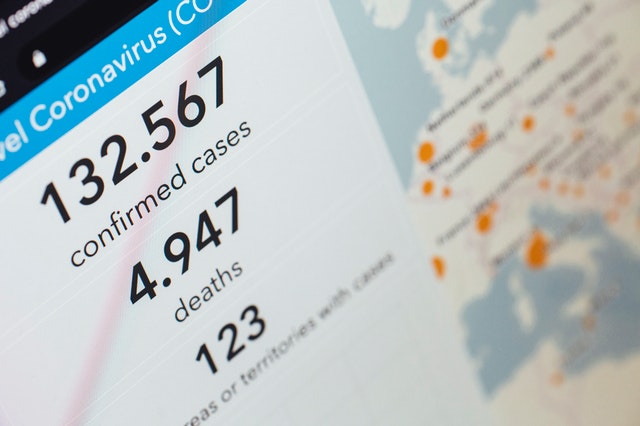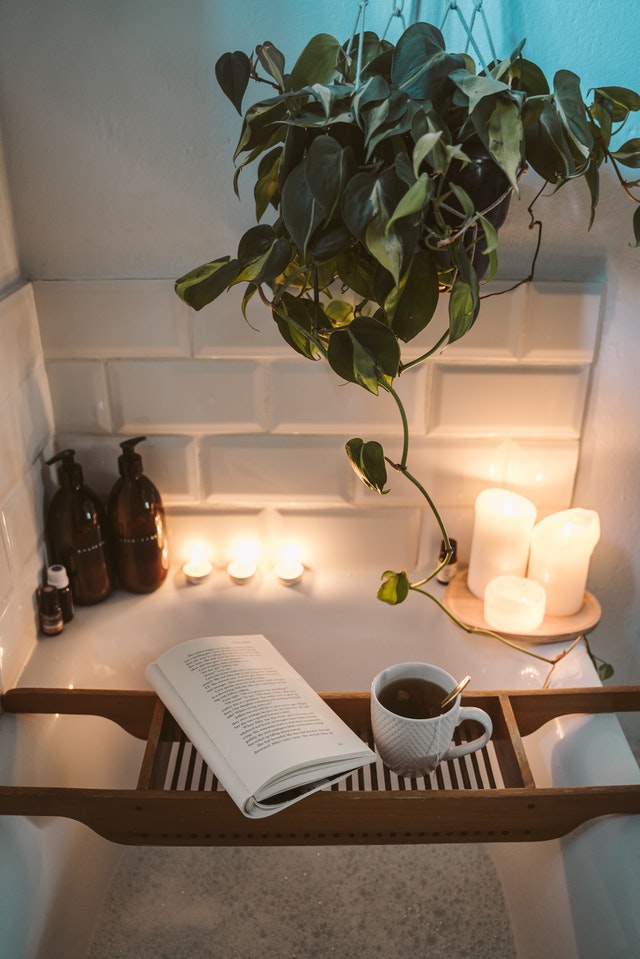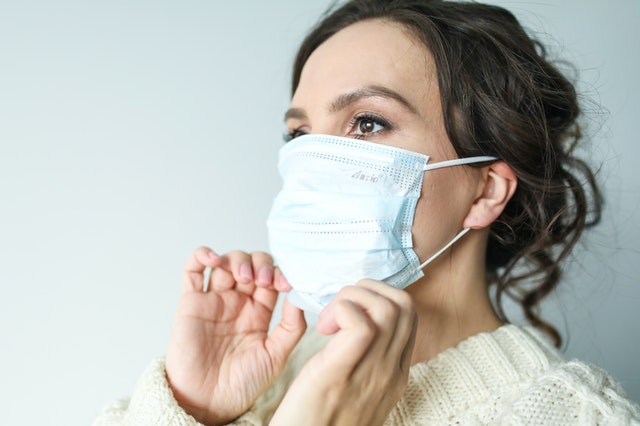
Why we need to build mental health resilience
Mental health resilience and crisis
In times when we are subjected to challenging headlines daily, you may feel your mental health straining. Troubling, turbulent times like this pandemic, a natural disaster, political upheaval or economic instability can have a negative effect on anyone. Even individuals that usually don’t usually struggle with mental health. But for those of us who were already struggling with depression and anxiety before this pandemic, all this extra stress and extreme changes in routine can really be challenging.
Staying healthy during times of crisis is key. An important factor in staying mentally healthy is ensuring you are able to cope with daily stressors successfully. This can be achieved by building up your mental health resilience. Resilience will help you deal with stress more effectively. It will also ensure that you bounce back quicker after your body and mind deal with a stress response.
Resilience is a little bit like immunity to a certain disease. You might still get sick despite being vaccinated or having been sick before. But usually you won’t get as sick as a person without immunity. And usually you will recover much quicker. In terms of crisis, resilience means that you can deal with and adapt to the changes and stressors the situation throws at you. Once the crisis is passed, you will return to the way you felt before the crisis quicker and experience less after-effects.
Life is unpredictable. So, the more skills and techniques we have in order to help ourselves during these times, the better. It is possible to build up your mental health resilience. Let’s look at some techniques to build your mental health resilience during times of uncertainty.

Techniques to build mental health resilience
Compare your thoughts with reality
Some worry is very natural during times of uncertainty. But there is a difference between a healthy amount of worry and disappearing into a pit of anxiety. In order to ensure that you stay on the safe side of your thoughts it may help to take a moment to deliberately compare the thoughts in your mind to the reality you know. Take the current standing on the situation from a reputable and relatively neutral news source and compare it with your internal dialogue.
Are your thoughts reflecting something much worse than the facts show? Is it possible that you are you overreacting? Are you making assumptions about the future? Perhaps taking a step back to look simply at the facts without emotion can be helpful in noting what additional stress you have brought to the picture. Especially in crisis, we tend to generalize a certain situation into the future. Most of the time this makes the situation seem worse than it is.

I know that as human beings we always see things through the lens of opinions and emotions. Our experiences are shaped by how we perceive our world. But sometimes it helps to try and separate that filter to make sure we are not distorting reality. These days, even reality is bound to leave you feeling uncomfortable, and that’s okay.
Just check in with yourself to ensure that your mind isn't exaggerating things out of proportion.
“You never let a serious crisis go to waste. And what I mean by that it's an opportunity to do things you think you could not do before.”
- Rahm Emanuel
If you take this health crisis as an example, I have definitely done my share of freaking out. Somewhere in the midst of a panic attack and hyperventilating I asked myself: “Do you truly think the crisis will go on indefinitely? Or is it more realistic to believe we will find solutions and keep living life?”.
Understand your negativity bias
While we are taking a moment to deal strictly with facts in order to spot our own exaggerations, I also find it helpful to take note of my own “negativity bias”. When we are already experiencing daily anxiety or struggling with the negativity of depression, we may also be more drawn to negative news. This means that our brain is filtering the story to highlight the most negative parts and downplay the neutral or even positive sides of the story.
Finding awareness about this can help us keep our own biases in check. Especially if this is something we were prone to before these trying times. Negativity bias can be sneaky and happens in the unconscious thought process before we think we are even forming an opinion about something. Trying to balance negativity with positivity can be a very helpful exercise.

I’m not saying that you will necessarily find great news about the pandemic (although there have been some very heart warming stories). But maybe looking for unrelated positive news could also help offset the large, intimidating amount of negative news we have all been consuming. This also goes back to neuroplasticity, meaning that your brain will strengthen the thought processes you keep repeating. If you keep looking for negative news, your negative thought patterns will subconsciously be reinforced.
To counteract this, it can also help to find a more neutral source of news. Or you can look online for positive news networks (yes, they are out there). This will give you a full picture instead of a sensationalized version of the story, which is mostly intended to captivate an audience. It helps to become aware of which type you are most exposed to and find a balance.
Consume less news to help with mental health resilience
Without doubt, it is important to be informed about a situation. You need to do enough research to answer any critical questions and plan ahead. And it is just as important not to over-consume any news past that point. For those of us who struggle to keep negativity and anxiety in check, it can be vital to have very firm boundaries with news and social media.
These days, we have such an abundance of news sources, be it TV, social media or newspapers, that we can start to feel like a story is everywhere we look. Make an effort to have time away from the news so you don’t feel overwhelmed. And if you have that one friend that just won’t stop panicking with worst-case-scenarios over the phone, make a point of changing the subject. Or gently let them know that it is only useful to talk about it to a certain point.
Protecting your mental well-being is a critical skill in times like these.
And it can be very refreshing to make the choice to protect it, instead of continuing to participate in dooms-day conversations on social media. A few weeks into the lockdown I had to completely stop watching the news. I also quit checking Facebook and social media. The constant influx of panic messages wore me down and mentally exhausted me.
To protect myself, I only checked the government website for any new regulations we had to follow. Other than that, I unplugged from the outside world and focused on things that made me feel positive. To build mental health resilience it is important to give your brain a break and take a step back.
Social contagion phenomenon
More than ever, we are connected to our acquaintances, friends and family through social media. But in uncertain times, that can also be a breeding ground for what experts call social contagion phenomenon. Basically, it refers to the sharing and spreading of opinions and thoughts in social circles that can skew the way we feel about something. This means that just because a certain opinion is well-shared in your social circle doesn’t necessarily mean it’s true or healthy.

Individuals are, in a sense, vulnerable to being “infected” with ideas - good and bad - because they put a lot of value on the opinions of their social circle. The collaboration we enjoy with friends online can of course be a wonderful thing as well. But as fear and panic grows, be aware that you might be vulnerable to absorbing the feelings of others. Sometimes to the detriment of our own health. In this case, healthy boundaries and some time away from the social media treadmill can be very helpful.
It is also okay to have a different opinion. If you feel anxiety creeping up when your sister talks about the end of the world, you can decide for yourself whether or not that rings true. In any social circle there tend to be very emotionally reactive people and more grounded people. We are all different and there is no right or wrong way to be. But, if you feel someone else’s panic wash over you, it might be a good idea to evaluate whether that’s your own opinion or theirs.
Focus attention elsewhere
As these situations start to feel as though they are taking over our lives, it becomes ever more important to find positive things that focus our attention elsewhere. I think that’s why we have seen such an increase in people taking up baking or new hobbies. Even just sitting down with the kids to read a book can be the perfect way to have a mental vacation from the madness.
It might be difficult at first to focus on something other than doomsday news. But in order to build up your mental health resilience, it is important to gently guide your mind in that direction. If you cannot focus on that show you wanted to watch, take a short break. Do some deep breathing exercises. Maybe walk up and down the hallway and then return to what you wanted to do.

With time, your mind will start to unwind out of the state of shock it has been in. If you combine this with consuming less news, you will be able to build up more positivity in your day. Pretty much everyone I know has had a million things that need to be done piled up around the house. Whether or not we like it, the quarantine has been the perfect time to catch up, since many of us cannot leave the house.
I did a much-needed deep clean of the entire house. Proceeding with one room (or part of a room) at a time, as to not overwhelm myself, I spread this out over almost 10 days. Whenever I didn’t feel like cleaning anymore, I stopped and went to do something else. With a mile-long list of chores to catch up on, my mind was completely focused on things other than the quarantine.
Find your mental health resilience community
Now, as I said above, you may want to be careful about too much negative social media or news. But, another way to build your mental health resilience is to get support when you need it. Do not be ashamed or afraid to ask for help and support. It is often too much to shoulder things alone. A crisis can really make that fact apparent.
So, while it might not be a good idea to scroll through Facebook reading about everyone’s panic attacks, it might be wise to join crisis support groups and talk to loved ones who can help. Of course, not everybody is going to be upbeat and positive each and every day. And you cannot expect that from your family and friends.
But, you will benefit from connecting with people who are generally positive. This also includes having a realistic outlook on the future. And people who are not easily rattled and can help you regain your focus during a crisis. These connections can go a long way in helping with your mental health when you feel overwhelmed.
Depending on your location, someone might be able to come over and give you a hand with the kids when you need it. You may be able to have meals delivered to take some pressure off in the kitchen. And you can find online groups whose members make it a point to give each other positive support and encouragement. This will lighten your load and help you stay healthy.
More self care
Of course, practicing more self care than usual can also be the key to keeping yourself resilient during these times. Have an extra long bath, indulge in some healthy baking, do a video yoga session or just sing at the top of your lungs in the car… it all helps. Blowing off steam and relaxing alone or with someone (or some-pet) your love can be the momentum you need to swing back in the positive direction. Any little things help.
Self-care might seem like the last thing on your mind. Especially if you are quarantined at home with multiple young children or elderly parents who need your care. But exactly during this time it is crucial that you look after yourself. If you run yourself into the ground, you will expose yourself to becoming physically ill or mentally exhausted.

So, take it one step at a time. Even if you just have a few minutes. Do a short meditation. Take five minutes on your balcony. Or simply lock yourself in the bathroom and listen to music for a few minutes. The important thing is that you check in with yourself and keep recharging your own batteries.
And whenever you’re feeling like you’re overwhelmed, frustrated and confused remember: This is an extraordinary situation and you are not alone. No one has a crystal ball and we are all just trying to do our best, one day at a time. I think everyone is a little overwhelmed and intimidated by all the changes. That’s natural. Just take a deep breath and know you’re doing everything you can.
Assessing the past
Since resilience can be built up and practiced, it might also help you to consider past events. During a crisis we are mostly busy managing what is happening. Depending on the crisis, this stage can take days, weeks, months or even years. Once you feel like the crisis has calmed or passed, you can take a look back at what happened.
Think about how you handled things and how you felt. When you look back at situations like a major flood or a house fire, you now know what kinds of feelings you are likely to experience. You can mentally prepare for the order events that come during and after a crisis. You also know that you have survived once and you can definitely do that again.

For example, when I lived in Canada, we had a lot of forest fires every year. I would feel extremely anxious when the alerts came in and we had to start packing our things. The first year was terrifying. I could hardly sleep and spent nearly two weeks running on adrenaline and coffee. The second year, I was much more prepared. Both emotionally and logistically. I knew what to expect and my resilience had been built up from the year before.
Even though you may have never experienced a pandemic before, you will look back at some point and assess how the situation felt. And it will prepare you for what may come in the future. You can also look back at similar events in your life, maybe forest fires or maybe a tornado, and remember how you made it through the crisis. You may discover that you are actually much stronger and more resilient than you think.
Acceptance
A final point is to practice acceptance. When I was younger, I used to get extremely emotionally distraught in crisis and try to control the situation and fight it in every way I could. This was both physically and emotionally exhausting. With time, I learned that change is inevitable. If I know one thing it is that there will be change. Always. I bet some of you have learned that the hard way a long time ago. I just took a little longer to figure that one out.
The most difficult thing was to accept change. I believe that acceptance has helped me build mental health resilience. I no longer fear change. My understanding is that it will come. Mostly at very inconvenient times. But that is entirely out of my control. This does not mean I am completely helpless. It means that I now understand where my energy and resources are best focused during a crisis.
I can conserve my mental energy for the things that ultimately matter. Fretting and worrying will just make me extremely tired and worn down. I accept that a crisis is happening and things will change. Then I proactively take charge only of the things I know I can control. I just take it day by day and stay creative with what I can achieve.

During this particular crisis, the most difficult part has been accepting whatever the government decided for us. I understand that things have changed and there is not much I can do to control that. Instead, I focused on our basic needs and making sure we were safe and healthy. The rest, I had to let go and trust that I will figure it out when the time comes.

The Takeaway
Building mental health resilience is a very important step in protecting yourself during a crisis. It takes patience and practice, much like a muscle you train up. But, there are different techniques you can use before and during a crisis to ensure you stay healthy. Especially when things feel too overwhelming to deal with, remember that you can build your resilience and weather the storm.
Like me, you may have been completely drowned by a crisis before. You may have struggled with the situation and the aftermath for a long time. Even though we get into that comfort zone and want to stay there, that’s just not how life works. Change will always happen and we need to stay mentally and physically healthy to be able to adapt to and process change.
I hope that you will find your own way to build up your mental health resilience.
And I hope that you will find your way through this pandemic and come out stronger on the other end. Remember that you are not alone through this. For most of us this is the first time we are facing such a global health crisis. The majority of us are newbies at how to handle a global viral outbreak on such a large scale.

More than anything, I want to give you hope that although the future may be different, there will be a future. We may have to be creative about where to find work. We might lose loved ones during this crisis. And we may lose homes and businesses and face uncertainty. But we should never stop fighting for a better future for our children, our loved ones, and ourselves.
Above all, take good care of yourself and train that mental health resilience muscle! You are your most valuable asset.
Sources
https://www.verywellmind.com/negative-bias-4589618
https://www.apa.org/topics/resilience
